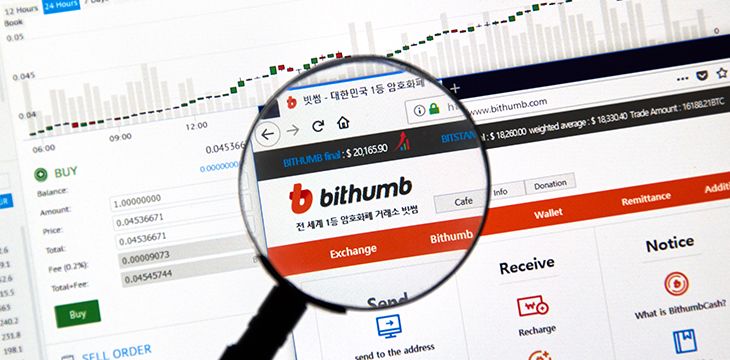|
Getting your Trinity Audio player ready...
|
South Korean cryptocurrency exchange Bithumb is facing 80 billion won ($68.9 million) in taxes, a new report has revealed. The exchange’s largest shareholder announced the taxes over the weekend, with sources claiming it will seek legal redress on the issue.
The shareholder, Vidente, revealed the tax ordeal via the Financial Supervisory Service’s electronic disclosure board. According to a report by local outlet The Korea Herald, the country’s National Tax Service is demanding the $69 million from Bithumb as foreign customers’ withholding taxes on gains made from crypto investments.
Vidente reportedly only learned about the taxes on Wednesday last week when they acquired 34% of Bithumb Holdings, the parent company of the exchange. This made Vidente the largest shareholder in the exchange.
The report notes that “a foreign corporation without a permanent establishment in Korea is subject to withholding tax but the relatively new cryptocurrency industry is not yet subject to this taxation rule.”
Bithumb will abide by the tax agency’s stipulation for now and honor its tax obligations, sources told the outlet. However, together with Vidente, it will come up with measures to fight back what it believes to be an unfair order. The measures will include an administrative litigation.
South Korea has had a checkered past with crypto taxation. Earlier this month, sources in the Ministry of Finance revealed that the government intended to tax capital gains on crypto transactions. The ministry had already held discussions on this, the source revealed, and would draw up a revised tax bill with the changes by the first half of 2020.
In 2018, the ministry in charge of SMEs in Korea proposed that crypto exchanges be stripped of their status as venture firms. This status allowed the exchanges special privileges such as credit guarantees which the stripping deprived them of. By losing this status, the exchanges had to pay almost 100% more in corporate taxes, a big blow to the industry.
Crypto exchanges have struggled with the taxation policies in other countries as well, with most countries lacking well-established policies for the industry. Japanese crypto exchanges have attempted to change this, reaching out to the country’s regulators earlier this year to seek reforms. The industry’s self-governing body JVCEA proposed various changes to the taxation laws, including a three-year grace period for crypto holders and a different taxation model for crypto derivatives.

 02-21-2026
02-21-2026 




